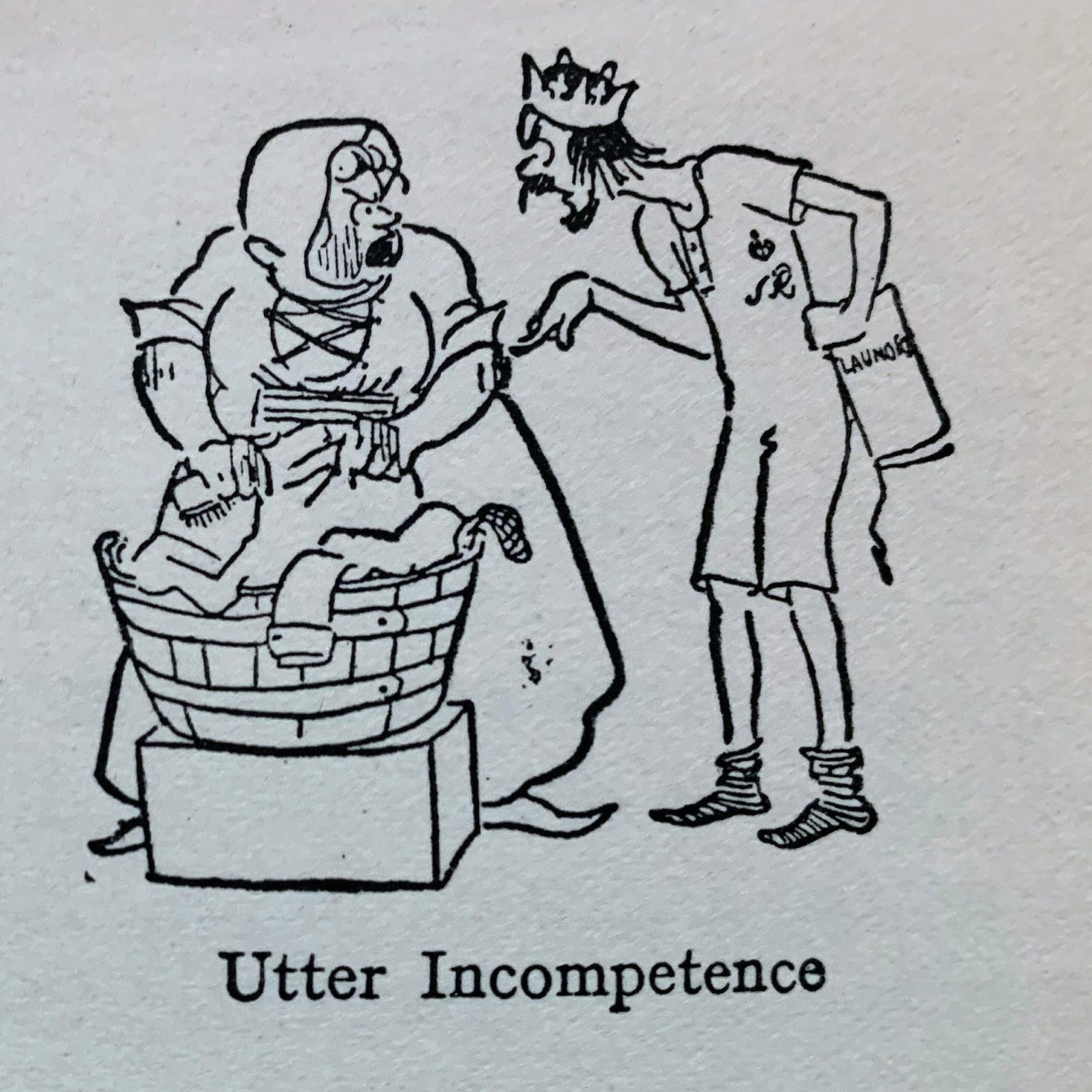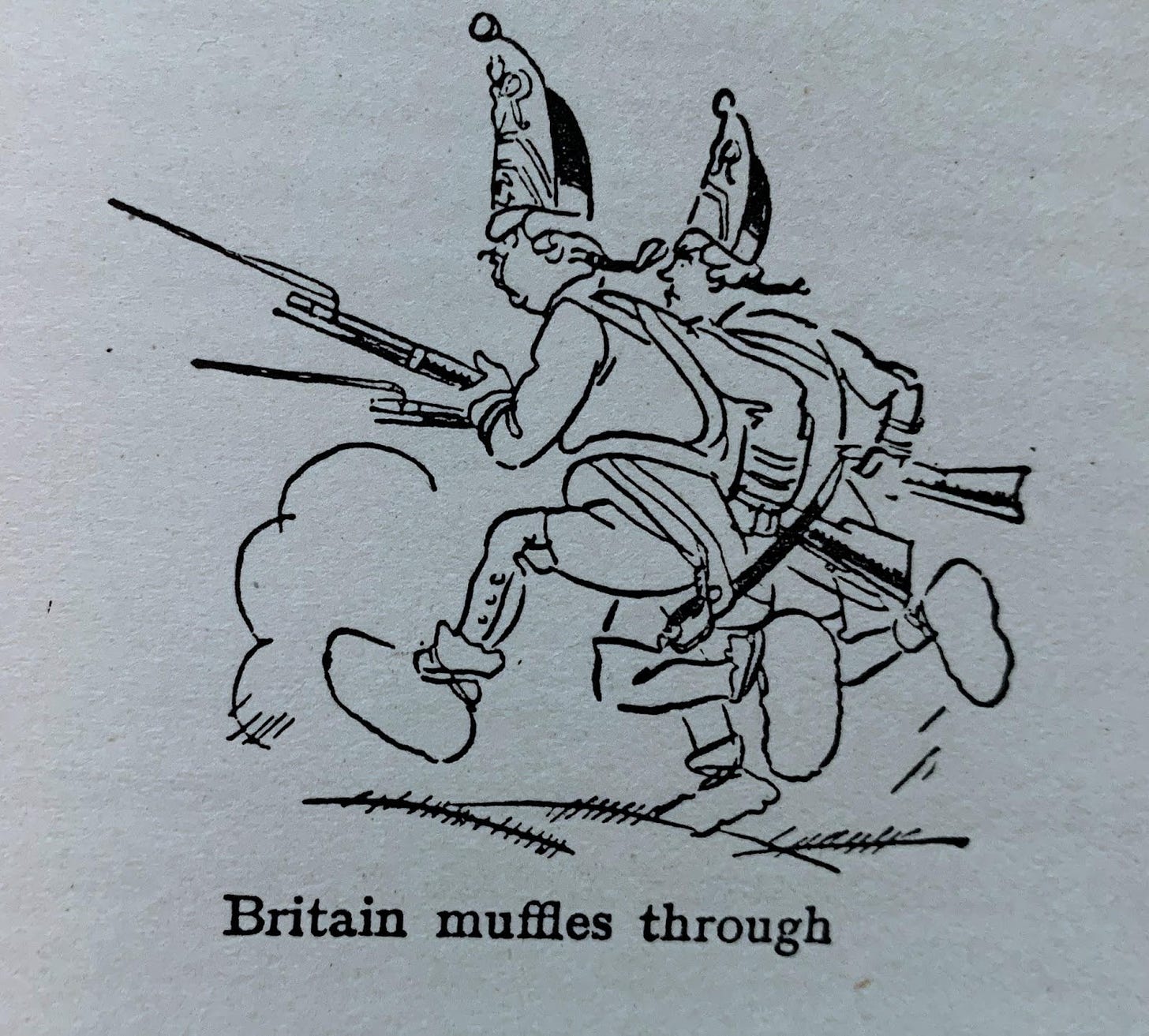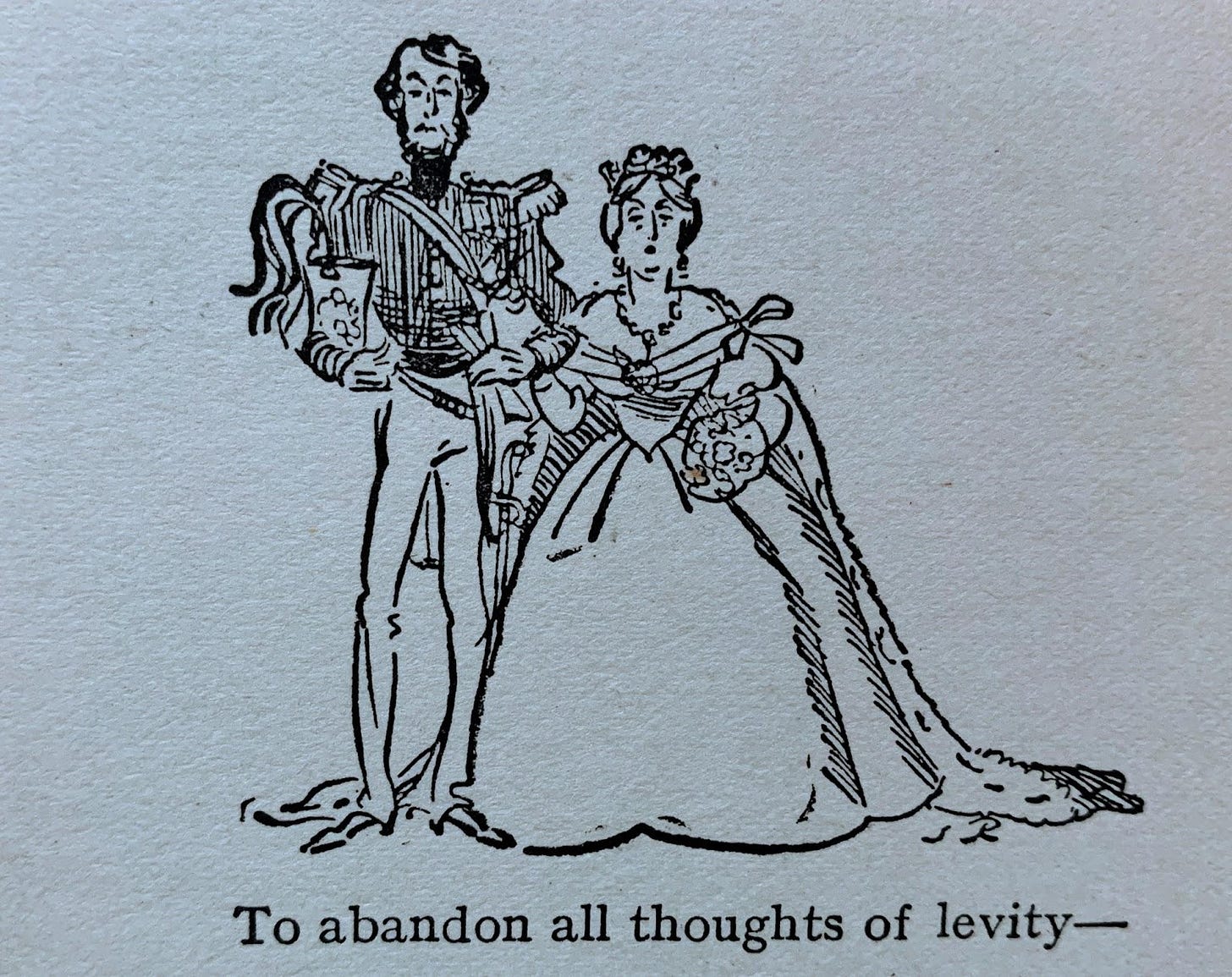“My friends, as I have discovered myself, there are no disasters, only opportunities. And, indeed, opportunities for fresh disasters.” — Boris Johnson
Ever since I first became obsessed with wit as a grand unifying principle of everything interesting in the universe, Boris Johnson has been a Person of Interest. And now, as his time as Prime Minister of the United Kingdom of Great Britain and Northern Ireland draws to an abrupt close, I think I’ve figured out where he came from.
In 2014, I featured Boris in a chapter of Elements of Wit (excerpted here), highlighting his ability as Lord Mayor of London to find “fully formed epigrams, historical references, comedic intonations, drive-by zingers and verbal jabs in the driest of subjects. He gets himself into trouble much more often than any political consultant would advise, but he either talks his way out of it or simply wins over the public because he is so obviously just being himself.”
In 2019, as he was clearly en route to 10 Downing Street, I further celebrated his windy charm as the ability to trundle forward where cooler heads would self-immolate. As in his omnibus unapology:
“I’m afraid that there is such a rich thesaurus now of things that I have said that have been one way or another, through what alchemy I do not know, somehow misconstrued that it would take me too long to engage in a full global itinerary of apology to all concerned.”
And last year he appeared in not one but two GWQs, in which I declared him the official mascot of this publication. And now his freshest disaster has lost him the leadership of his country, ending an era marked by “investment in crumbling towns, an onslaught on the regulatory state, sporadic nativism on the pretense of upholding sovereignty, nostalgia, technophilia, anti-woke demonology or any combination of the above, with a hefty spattering of deceit to cover the joins,” to quote this week’s LRB.
Boris the Wit has always been my subject, and I avert my eyes from Boris the Leader. So this recent tumble of the court jester is a relief; he can resume columnizing and memoirs without dragging down his nation.
But: Did he drag down the country, or did the country boost him up? In an excellent Financial Times column last week headlined “The nation that laughed itself stupid”, Janan Ganesh blames Johnson’s rise on Britain’s nihilistic unseriousness, “the natural outcome of the humour that is the nation’s favourite thing about itself.” They no longer run the world, so they’ll have a laugh, as “resentment of usurpers became mockery of their humourlessness.”
Combine that with fellow FT columnist Simon Kuper’s book Chums, describing his time at 1980s Oxford, “where a premium was placed on rapier wit rather than any fidelity to the facts.” (Ken Whyte distills the book nicely here.) Kuper’s devotedly shallow classmates, Johnson chief among them, came to run the country. And so you begin to get a sense of Johnson not as an aberration but a natural end state.
(This was the culture that produced the Bluffer’s Guide, after all. Her Majesty’s Bluffer’s Government was the finale.)
I’d like to posit that the beginning of this era came in 1930 with the publication of 1066 And All That, a slim volume subtitled “A Memorable History of England, comprising all the parts you can remember including 103 good things, 5 bad kings, and 2 genuine dates.”
This parody textbook by W.C. Sellar and R.J. Yeatman, both Oxford students, became a comedy classic by riffing on national myths and debunking any pretense of continued greatness. (Plus, it features the charming illustrations by John Reynolds excerpted here.) It wears its learning so lightly that it’s barely clothed:
“This is the only Memorable History of England because all the History you can remember is in this book, which is the result of years of research in golf-clubs, gun-rooms, green rooms, etc. For instance, 2 out of the 4 dates originally included were eliminated at the last moment, a research done at the Eton and Harrow match having revealed that they are not memorable.”
The book is dedicated to “the Great British People without whose self-sacrificing determination to become top Nation there would have been no (memorable) history.” And, because it was written after the Great War when it was clear the United States was now the “top Nation,” 1066 And All That declares that History is now at an end; this History is therefore final.”
Nearly a century ago, the hallmarks of Johnsonism were being assembled: Eloquent improvisation memorably bleeding into snobby nihilism. Ganesh has described British humour as “an artful evasion of realities that must be faced in the end.”
Maybe NoMoBoJo means a new chapter of British wit and history is about to be written. But surely the last line of 1066 And All That still holds:
“N.B. — Do not on any account attempt to write on both sides of the paper at once.”
Quick quips; lightning: Boris edition
“Life isn’t like coursework, baby. It’s one damn essay crisis after another.”
“We are once again going to believe in ourselves, and like some slumbering giant we are going to rise and ping off the guy ropes of self doubt and negativity.”
“I could not fail to disagree with you less.”
Speaking of…
BoJo
MoBoJo
A previous theory of English wit
Get Wit Quick No. 158 will be the last on Boris for a good long while, I promise. And of course, it’s easy to enjoy his antics from across a wide ocean. To recap: Eloquent improvisation, good; Memorability, good; Snobby nihilism, bad. My book Elements of Wit: Mastering The Art of Being Interesting was all wheat, no chavs. Ping off the guy ropes and tap the ❤️ below.










